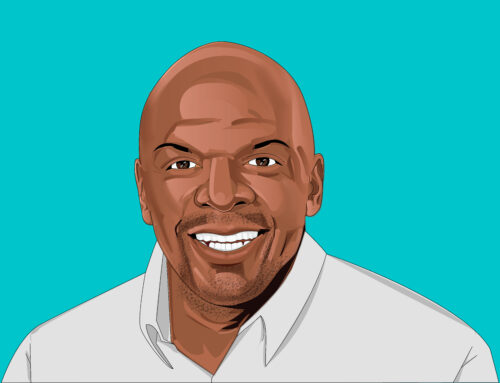Becky Natiello Talks Internal Recruiting Teams and Current State of Hiring!

In this episode Talent Chronicles, Becky Natiello joins us to talk about internal recruiting teams. Becky is a well-versed expert in the industry, having worked in a multitude of spaces both on the agency and corporate recruiting side. Becky talks about the current state of hiring, how it’s differed recently, and where she foresees it going.
JCSI: Hi everybody, this is Bergin Sullivan with JCSI. I’m here today with Becky Natiello joining us for an interview on our Talent Chronicles series. Thanks so much Becky for being here today!
Becky Natiello: Thank you so much for having me, it’s an honor.
JCSI: So, you’ve been in talent acquisition for around 20 years now with experiences in industries such as wellness, healthcare finance. Could you give us a quick background of your work experiences and tell us how you got into talent acquisition?
Becky Natiello: Absolutely. I studied psychology in college with the intention of becoming a therapist, but life had other plans for me. So, I ended up going to work at Oracle for five and a half years in sales and education.
A friend told me that she thought I would be better suited for recruiting. So, I kind of did the switch and started recruiting in around 2003. I started in the agency side, and I was in the agency side for a few years and then transitioned over to corporate recruiting, which really is my forte.
Being the number one cheerleader for a specific company that I believe in, and love has really worked well for me, and then having that team that you can combine the energies with and get other people excited to join that company in a variety of positions is really what I enjoy.
So, I started in biotech and pharmaceutical, I went to medical and scientific research. I’ve also been in hospice, medical nutrition, commercial real estate finance, commercial real estate owner operator, eyewear. It’s just been a plethora of industries and I’ve enjoyed all of them.
JCSI: Awesome! You have a lot of experience which is good. So, what have you noticed about the state of hiring in the current crazy market that we’re in? I know it’s different than anything we’ve kind of dealt with before.
Becky Natiello: You know, in my opinion, it has changed to be more of a candidate focused market, which when I first started, it was very heavy on the company side.
So “Why would you want to work for us” and ” Why should you want to work here?” And now it’s, “How can we get you to work for us?” and “Why would you, candidate, wants to spend most of your waking time utilizing your skills, intelligence and expertise here with us?” So, in that respect, I think that’s a positive shift.
It should be the company selling itself as well as the candidate selling him or herself. So, I like that shift.
On the tougher side, it’s been harder, and we see more movement. Meaning it’s harder to find the right people, and we’ve seen a lot more movement with candidates transitioning between companies.
However, one of the ways that companies can get through that is training. Now there are certain skill sets necessary for specific positions. For example, if you’re in accounting, it’s hard to hire somebody who doesn’t have that specific skillset. But, if you take recruiting for example, It’s more about the person.
They don’t teach you recruiting in school. But if you find the person with that right personality and that right energy you can train them. I think that can be said for a lot of positions. Senior level is a little bit harder but for entry, potentially mid-level positions, there really can be that training option, if you can’t find the right match.
JCSI: That makes sense. I know you’ve already mentioned a couple of the challenges, but what would you say the biggest challenge is that’s come up, and the biggest opportunity that’s come up?
Becky Natiello: So, I think that in this market right now, which is being hit by COVID, extra money being given by the government, which has kind of subsided at this point. People who are afraid to be working in the market and preferring to work from home, which especially for the Realty industry is just not an option. We must be more creative. So, we must think about different ways to hire people and to promote jobs in ways that we haven’t before.
Now, that can also cause some issues with internal equity. Because if you do sign on bonuses and you’re paying higher salaries, what about your committed people? Who’ve already been there for 5-10 years? They’re just as important as these people who are new to the company. So, it’s a balance.
It’s a delicate balance that HR and companies are, are dealing with right now. Maybe they’re considering retention bonuses for the internals and raising salaries to meet new expectations. So, it’s a blessing and a curse, but I think that we can spin it to a positive light that maybe people need to be paid a little bit more than they have been in the past.
Maybe expectations need to be raised a little bit more along with that higher salary. And again, be a little bit more open to the people you hire, and the work-life balance and, and the options and promotions and benefits that you’re offering people when you’re trying to engage them to recruit them.
JCSI: When you’re looking at interviews, have you been seeing higher no-show rates? Are you primarily holding virtual interviews, or have you experienced anything in person? What have you noticed around that?
Becky Natiello: You know, that’s a great question, and I have a multifaceted answer for you.
So right now, I’m working with a commercial real estate owner operator. Most of the positions are site positions, so I conduct a phone screen, and then it typically goes to an in-person interview and then an onsite position. I think that most companies are doing kind of combinations, but probably for the majority virtual interviews.
What I’m seeing currently, at least 30% of the interviews I have scheduled, which candidates have committed to, are no-shows and that’s being generous. These are not necessarily entry-level positions. So, I’m surprised because in my last position it was probably closer to 40% no-show and those were more entry-level positions.
These are a little bit more senior level positions and I still am a bit shocked at the level of no-shows. I don’t know if it’s because people are just so busy in their current roles, if they’re forgetting, if they just no longer want to work if they’re just getting picked up so quickly and forgetting to let us know. It could be a variety of reasons.
I can say three years ago it would have never been this high, and it’s a complete shift.
JCSI: Yeah, we’ve seen a couple of our clients even offering, a gift card or a bonus if you show up to the interview, have you experienced anything like that? I mean, those are more of the entry level positions that we’re noticing it in, but is that something that you guys have considered or something that you’ve seen?
Becky Natiello: I think that’s a fantastic idea. I’m sorry that it’s even gotten to that, I think that’s a little sad, in my opinion, that you must in essence lure somebody to even interview with you.
What I have seen and partaken in is sign on bonuses for positions. So, if you join our company by X date, we’ll give you a $1,000sign-on, or a $500 sign on, or a $2,000 sign on depending on the level, position, and commitment. But to entice somebody to just interview, I personally have not engaged in that. But I can see the level of desperation being there and that it could be an option for sure.
JCSI: Yeah, definitely. It’s crazy! What about retention rates? What have you noticed there? You know, decrease, increase, anything like that?
Becky Natiello: A decrease and again, because companies are so desperate for strong talent that they will get that talent however they can. Typically, if they can find it from a competitor or a like-minded business, they will. And they will pay them more, give them that sign on bonus and give them that extra paid time off or whatever it is that the candidate is looking for that they’re not currently getting, to bring them over. So that’s why we’re seeing a bit of a dent in the retention rates because it’s so hard to find these qualified candidates, especially more at the mid to senior level.
JCSI: All right, going into the internal team within HR and talent acquisition, how are internal teams handling the hiring? What have you seen that’s changed, or anything that hasn’t changed that’s just remaining the same and it’s still working? Anything to comment on that?
Becky Natiello: The hard part about COVID is one of the best ways to recruit is in-person. Via career fairs, or lunch-and-learns onsite at the office or pizza nights, you know, different creative ways that companies can Bring candidates on site and really get to understand the culture and the climate of the company.
And show them that, “Hey, this is why you want to work here, because this is how we’re like, and you’re going to spend at least 40 hours with us every week, and this is why you want to.” Unfortunately, we don’t have that opportunity right now, and it just doesn’t come across via zoom or teams, or video overall.
To not have that in this climate is kind of detrimental. So, it’s just talent acquisition and human resources spinning their wheels more on the monetary side of things to try to figure out what other ways they can find people. Maybe it’s through different social media sources to post on and engage. You see people posting videos, and even using Tik Tok, and different media channels to try to engage different levels of candidates in a way that they haven’t before. Also, to show their culture and engage these candidates without being able to meet with them and have them live “a day in the life of” which, two years ago we could have done.
JCSI: I think that’s been one of the biggest changes that we’ve seen. Would you say that that’s also impacting your sourcing methods? I know social media has become, I think, more of a prominent tool, in that we’re posting jobs and trying to get people to kind of interact with us. But what other ways have you seen sourcing change for you guys?
Becky Natiello: In my experience, I think it’s kind of regressed a bit to old school. So, I think for the past, 5-10 years we’ve really relied heavily on sourcing through LinkedIn, Indeed, CareerBuilder, and Monster when those had their ‘heyday”. But now I think we’ve kind of regressed to cold calling because that’s pretty much some of the only physical interaction we’re able to get with these candidates, because we’re not able to necessarily have those in-person interviews and because not everybody’s responding.
These candidates are so inundated with messages through all these social media platforms, they don’t even know which one to respond to. So, it’s really those people that go above and beyond, pick up the phone, call and say, “Hey, I’ve got this opportunity, you you’d be stellar. Let’s talk about it and let me tell you what’s in it for you.” So, kind of going back to that old school methodology that I think is helping some of those recruiters stand out.
JCSI: What would you say that you predict happening, and what do you see coming? Do you think it’s going to have positive changes? Do you think we’re going to kind of be stuck in the same type of environment that we’re in now for a little bit longer? What do you think?
Becky Natiello: All right, well, pulling out my crystal ball, I think that we’re going to continue to see a shift and, and there’s a couple of reasons, right?
Millennials and Gen Z are focused on much different benefits and their focus is much different than, for example, the generations that came ahead of them and COVID of course has changed things as well. That’s not going to dissipate anytime soon, even if in five years everybody’s vaccinated and COVID has calmed down.
Because all this stuff is happening at one time, I hope that companies will start to really appreciate their employees, focusing more on the employees as opposed to just the bottom line and the output that the employee can give them. I hope we’ll start shifting more to benefits such as health and wellness and work-life balance. For example, saying “Yes I expect this out of you, but whether you do it in a 6, 8, or 10hour day is not necessarily my concern, I just need you to do this job.” I hope that moving forward, we’re going to see more focus on the candidate.
I can foresee more remote work happening. Clearly the work has been done these past two years from an almost remote environment, at least for the USA we can see that some small mom and pop shops have shut down and there’s a variety of reasons for that, but for the whole, these large businesses and mid-size companies and some small companies have survived even with these people working from home.
The main thing I see is more remote work and more of a focus on the employees, and what’s going to get them to be retained, happy, and productive.
JCSI: Great! I like the positivity. Were there any final thoughts, anything we didn’t get to cover that you’d like to go over?
Becky Natiello: You know, I’m a big fan of the interview process. And I think that, you know, now more than ever, we really need to focus on how we’re interviewing. Because now especially candidates are having more of a choice and getting multiple offers at any given time, especially the highly sought-after candidates.
So, it’s important, especially currently that we’re really taking the time to create the right job description that is listing the right responsibilities
So, I think being more prepared, being more equitable in interviews, and having more focus on skillset and personality is going to be more important moving forward and really sharing what the company offers for the candidate is going to be more important moving forward.
JCSI: Right, that’s great! Well, I really appreciate you taking the time to join us for another episode in our Talent Chronicles series!
Becky Natiello: Thank you so much for having me, it’s been my pleasure!
Talent Chronicles is brought to you by JCSI, an innovative recruitment consultant that delivers better hires, faster, and at less cost.




